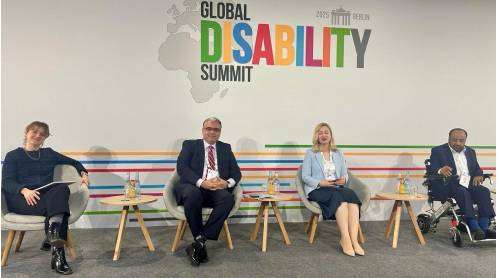HOUSTON: Oil prices strengthened on Thursday on investor concern that a widening Middle East conflict could pose a threat to crude oil flows from the region.
Brent crude futures were up $2.82, or 3.82%, at $76.72 a barrel by 11:36 a.m. EDT. U.S. West Texas Intermediate crude futures rose $2.85, or 4.07%, to $72.95.
Both benchmarks climbed by more than $3 per barrel during the session.
Brent futures reached an intraday high of $77.65 per barrel, the strongest since Aug. 30, while WTI futures peaked at $73.95 per barrel, a one-month high.
Biden says ‘discussing’ possible Israeli strikes on Iran oil facilities
Market fears are mounting over the possibility that Israel might target Iranian oil infrastructure, raising the spectre of retaliation from Iran.
“This is going to really test the mettle of the market because up until now the risk to supply has been downplayed, as there has been no disruption, so this could be a game changer,” said Phil Flynn, senior analyst for Price Futures Group.
“It is raising a lot of bullish questions. The market has got to buckle up its seat belts and get ready for some volatility,” he added.
There are concerns that such escalation could prompt Iran to block the Strait of Hormuz or attack Saudi infrastructure, as it did in 2019, said Panmure Gordon analyst Ashley Kelty.
ME Conflicts oil prices
The strait is a key logistical chokepoint through which a fifth of daily oil supply passes.
Ministers from Gulf Arab states and Iran attended a meeting of Asian nations hosted by Qatar to discuss de-escalating hostilities between Israel and Iran, three sources told Reuters on Thursday.
The Gulf Arab states sought to reassure Iran of their neutrality in the conflict on concerns that further violence could threaten Gulf oil facilities, two of the sources said.
Conflict deepens
Israel bombed Beirut early on Thursday, killing at least six people, after its forces suffered their deadliest day on the Lebanese front in a year of clashes with Iran-backed Hezbollah.
Israeli Prime Minister Benjamin Netanyahu said Iran would pay for its missile attack against Israel on Tuesday while Tehran said that any retaliation would be met with “vast destruction,” stoking fears of a wider war.
“The intensifying conflict in the Middle East is generating significant supply concern in the global crude market,” Rystad Energy’s chief economist, Claudio Galimberti said in a note on Thursday.
“The potential for supply disruptions – particularly, but not exclusively from Iran – increases as the fighting intensifies,” he added.
Curbing oil gains on Thursday, the National Oil Corp (NOC) lifted the force majeure at all Libyan oilfields and terminals, the state oil company said in a statement on its Facebook page, potentially ending a crisis that has heavily reduced oil output.
Meanwhile, U.S. crude inventories rose by 3.9 million barrels to 417 million barrels in the week ended Sept. 27, the Energy Information Administration said on Wednesday, compared with Reuters poll expectations of a 1.3 million barrel decline.
“Swelling U.S. inventories added evidence that the market is well supplied and can withstand any disruptions,” ANZ analysts said in a note.
Fears have been tempered by OPEC oil spare output capacity and the fact that global crude supplies have yet to be disrupted by unrest in the key producing region.
OPEC has enough spare capacity to compensate for a full loss of Iranian supply if Israel knocks out that country’s facilities.
Foreign exchange reserves held by the State Bank of Pakistan (SBP) significantly increased by $1.168 billion million on a weekly basis, clocking in at $10.702 billion as of September 27 to reach 2.5-year high, data released on Thursday showed.
Total liquid foreign reserves held by the country stood at $15.983 billion. Net foreign reserves held by commercial banks stood at $5.281 billion.
The increase in the forex reserves came after the SBP last week received the first tranche of Special Drawing Rights (SDR) 760 million, equivalent to $1.03 billion, from the International Monetary Fund (IMF).
This brings the SBP-held reserves to a 2.5-year high, as the dollar stockpile was last recorded above $10.7 billion back on April 16, 2022.
Last week, SBP foreign exchange reserves increased by $24 million.
The IMF inflow came after its executive board approved the 37-month, $7-billion Extended Fund Facility (EFF) for Pakistan last month.
The Pakistani authorities and the IMF team reached a staff level agreement on the EFF in the amount equivalent to SDR 5,320 million (or about USD 7 billion) on July 12.







